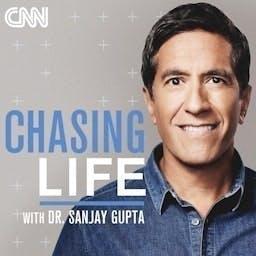This month we take a high level view of the landscape of 'tort reform' in the US (and what does that even mean?)
Physician-lawyer Dr. Shilpa Mathew, MD JD, walks us through some basics of tort law and advocacy efforts in the US, how you can get involved, and why it matters. (Note: Dr. Mathew's views expressed in this podcast are strictly her own, and not representative of her employer or ACOG.)
Shilpa Mathew, MD, JD, is a Northern California physician double board-certified in Obstetrics & Gynecology and Lifestyle Medicine. She is a former practicing attorney who spent the latter half of her legal career focused on health insurance and regulatory compliance and brings a unique perspective to the intersection of law, medicine, and policy. She has long been active in health advocacy and policy efforts—ranging from things such as pro bono legal work to protect basic health rights of foreign detainees in US prisons to serving as a medical student delegate to the California and American Medical Associations. She has a particular passion for issues related to medical malpractice and focused her residency research project on malpractice knowledge, attitudes and perceptions of OB/GYN residents nationwide. Currently, she serves as the Co-Chair of the Legislative Committee for the American College of Obstetricians and Gynecologists in California, where together with a team, she helps shape policy to advance women’s health.
BONUS: In the introduction, host Dr. Gita Pensa talks about her own litigation advocacy wish list - there are some 'standard' wishes on there, and some you may not have considered before.
Here is Dr. Pensa's informal Holiday Wish List for malpractice litigation reform.
BIG picture, pipe dream stuff: no-fault systems or state based compensation funds, healthcare specific courts, specialized judges...
Protection for doctors
Similar to Utah HB 503 legislation: if doctors carry adequate liability coverage, no going after their personal assetsOr at least abolish post-judgment wage garnishment, or have limits on durationVery clear and consistent protections of retirement accounts and primary residenceNo punitive damages demands without case passing a strict standard/tribunal beforehand Protection for mental health records and peer support/emotional support for health care workers No data bank reporting in no-fault settlementsEmployed doctors can't be named as individuals (think about other corporate litigation -- Boeing, for example. Engineers aren't named individually)Employed physicians should get "litigation leave", time for litigation prep and trial, and no adverse consequences if productivity-based
Attorney reforms
Caps on plaintiff's attorney contingency fees, and no double dipping for costs above that"Loser pays" ("English rule") for legal feesAttorney should face consequences for baseless punitive damages accusationsLimits on venue shoppingLimits on pre-trial or pre-resolution publicityProhibition of attorney social media posting about active cases, especially disparagement of involved partiesSanctions for misleading press pre-trial press releases (which can cause reputational harm for doctors)Standards of professionalism for depositions and reasonable limits (6h) for duration (and consequences for not adhering to them)Early resolution programs
Require Michigan Model-type early resolution attempts, and require the doctor and plaintiffs to be in the room togetherEarly neutral evaluation (with currently practicing, same-specialty physician input), with ability for outright dismissal for reasonable careTime limits on expert retention -- no plaintiff's expert supporting the case a year after filing? No case.Expert Witness Reform
No testifying if you are not currently actively practicing and in same specialty as defendantMedical board oversight of expert witnesses -- with the ability to censureLegal implications for outright false testimony It's a wish list. But...the only way to move towards any of these steps is through involvement and advocacy.
Happy Holidays to all, and we'll see you in 2026.




































